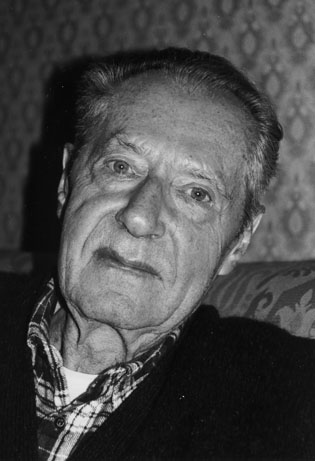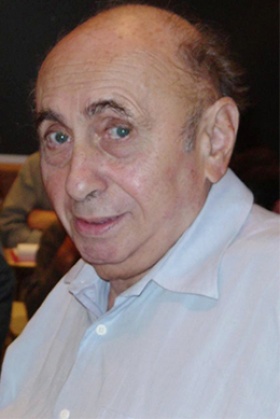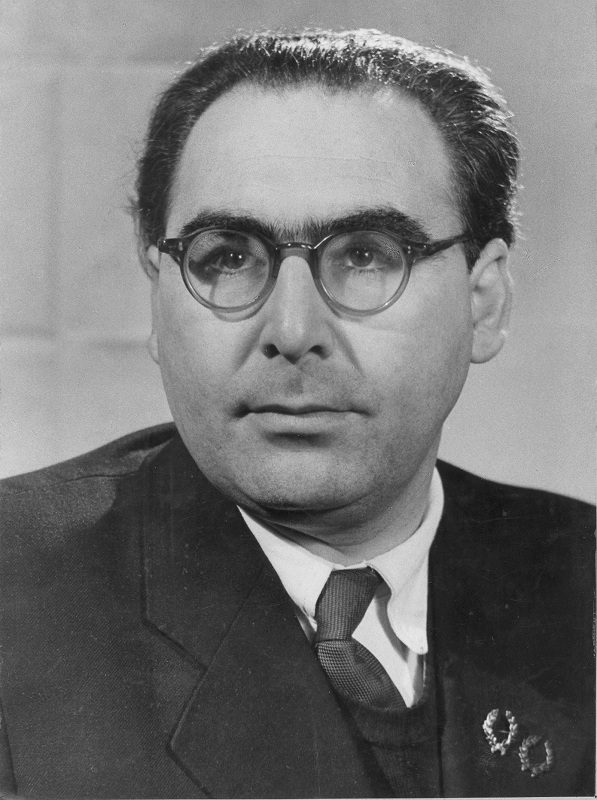László Fejes Tóth
His life and work
 Szeged, 1915. March 12. – Budapest, 2005. March 17.
Szeged, 1915. March 12. – Budapest, 2005. March 17.
László Fejes Tóth was the founding father of the Hungarian school of discrete geometry. He was a superb mathematician who had the rare ability to raise important and beautiful questions. He made seminal contributions to the subject of geometry - in fact, the term 'Intuitive Geometry' was coined by him.
Besides being an active researcher, he also directed the Rényi Institute between 1970 and 1982.
András Hajnal
His life and work
 Hajnal was born on 13 May 1931, in Budapest, Hungary.
Hajnal was born on 13 May 1931, in Budapest, Hungary.
He received his university diploma (M.Sc. degree) in 1953 from the Eötvös Loránd University, his Candidate of Mathematical Science degree (roughly equivalent to Ph.D.) in 1957, under the supervision of László Kalmár, and his Doctor of Mathematical Science degree in 1962. From 1956 to 1995, he was a faculty member at the Eötvös Loránd University; in 1994, he moved to Rutgers University to become the director of DIMACS, and he remained there as a professor until his retirement in 2004. He became a member of the Hungarian Academy of Sciences in 1982 and directed its mathematical institute from 1982 to 1992. He was general secretary of the János Bolyai Mathematical Society from 1980 to 1990, and president of the society from 1990 to 1994. Starting in 1981, he was an advisory editor of the journal Combinatorica. Hajnal was also one of the Honorary Presidents of the European Set Theory Society.
Alfréd Rényi
His life and work

Alfréd Rényi, March 20, 1921. Budapest - February 1, 1970, Budapest
Mathematician, professor, member of the Hungarian Academy of Sciences (corresponding member 1949, full member 1956), holder of the Kossuth Prize (1949, 1954). He finished his studies in Budapest. After graduation, he won a competition in the Greek language, and from 1940 on, he was a student of Lipót Fejér in Budapest. During World War II, he was in a labor camp. He finished his PhD studies in Szeged under Friedrich Riesz in 1945. In 1946, he went to Leningrad to work under the supervision of J.V.Linnik and I.M.Vinogradov; in his 1947 thesis, he came to solve the so-called quasi Goldbach conjecture. In the autumn of 1947, he become a full-time professor at the University of Budapest; in 1949, one at the University of Debrecen. In 1950, he was appointed as Director of the Institute of Applied Mathematics of the Hungarian Academy of Sciences (later Mathematical Research Institute), and in 1952, he got the chair of the Faculty of Probability Theory at ELTE, both positions he kept until his death.
His scientific work covers almost all of mathematics; he has made relevant contributions in all branches and was the founder of the Hungarian probability theory school. His research departed from Number Theory. From this starting point, he gave a pure probabilistic form and proof for the "large sieve", developed by J.V.Linnik for number theoretic purposes. These ideas led him to the results about the measures of the dependency of random variables. He introduced other measures as well to replace the correlation coefficients used in statistics. The so-called Rényi mixing theorems also stem from Linnik's large sieve. He found several profound applications of probability theory in number theory, the most significant one being the generalization of Borel's theorem. He developed a new axiomatic foundation for probability. Several probability problems of physics, particularly of quantum mechanics, were solved using his results. He was also interested in the philosophy of mathematics. He initiated Hungarian research in ancient mathematics. His "Dialogues about Mathematics", "Letters about Mathematics", and "Diary on Information Theory" were published in German, French, Russian, English, Italian, and Romanian. He published frequently on recreational mathematics and worked hard to initiate practical applications of theoretical findings. Among others, he acted as the secretary of the Bolyai János Mathematical Society (1949--55), and between 1965 and 69 he was head of the International Statistical Institute. He was one of the initiators of the "new math in school", a novel method in teaching mathematics. He was the editor of numerous journals in Hungary and abroad as well. He was editor of Studia Scientiarum Mathematica Hungarica, and a member of the editorial boards of Acta Mathematica Hungarica, Annales Sci. Math., Publicationes Math., Matematikai Lapok, Zeitschrift für Wahrscheinlichkeitstheorie, Journal of Applied Probability, Journal of Combinatorial Analysis and Information and Control.
Apart from teaching in Budapest, he was at various times a visiting professor at the Universities of Michigan, North Carolina, and Stanford, and he was a Fellow of the Institute of Mathematical Statistics. He was a visiting professor at Erlangen University in Germany and Fellow at Churchill College at the University of Cambridge.
